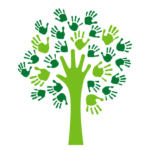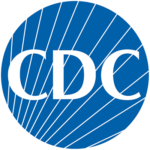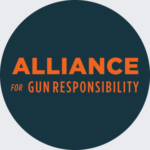Prevention & Intervention
- Alcohol and Drugs (24)
- Behavior Management (21)
- Bullying (70)
- Cyber Bullying (46)
- Foster Youth (42)
- Gangs and Violence (29)
- Homeless and Runaway Youth (16)
- Mentoring Programs for Youth (25)
- Safety (57)
- School Counseling (20)
The Kidpower Coloring Books show children using key People Safety skills to keep themselves safe. Download for free and choose from 11 different languages!
The child abuse prevention guide seeks to highlight the innovative ways that communities around the country are doing purposeful prevention work to help children and families thrive. The protective factors have always been central to the Resource Guide. A protective factors approach focuses on positive ways to engage families by emphasizing their strengths, in addition to identifying areas where they have room to grow with support. Focusing on protective factors helps children, youth, and families build resilience and contributes to positive outcomes.
Connecting children to mentors that help build their self-esteem, improve their schoolwork, and avoid risky behaviors
The Educational Fund to Stop Gun Violence (Ed Fund) is a 501(c)(3) affiliate organization of the Coalition to Stop Gun Violence. We use a public health and equity lens to identify and implement evidence-based policy solutions and programs to reduce gun violence in all its forms. We seek to make gun violence rare and abnormal. The Ed Fund makes communities safer by translating research into policy. We achieve this by engaging in policy development, advocacy, community and stakeholder engagement, and technical assistance.
The Coalition to Stop Gun Violence develops and advocates for evidence-based solutions to reduce gun injury and death in all its forms. CSGV’s guiding principle is simple: We believe gun violence should be rare and abnormal. We pursue this goal through policy development, advocacy, community engagement, and effective training.
In getting the bipartisan Brady Law passed in 1993, Jim and Sarah Brady accomplished the inconceivable. But there’s more work to be done — and only when we work together will we solve this problem. In order to do that work, we must accept these three truths about America’s gun violence epidemic: 1) Gun ownership demands responsibility; 2) Those empowered to do so must uphold existing gun laws; and 3) Gun violence is a uniquely American problem that impacts all races and ethnicities in the country, but nonetheless exacts a particular toll on Black and Brown communities.
Sandy Hook Promise is a national nonprofit organization founded and led by several family members whose loved ones were killed at Sandy Hook Elementary School on December 14, 2012. Based in Newtown, Connecticut, our intent is to honor all victims of gun violence by turning our tragedy into a moment of transformation. By empowering youth to “know the signs” and uniting all people who value the protection of children, we can take meaningful actions in schools, homes, and communities to prevent gun violence and stop the tragic loss of life.
Youth violence is a serious problem that can have lasting harmful effects on victims and their families, friends, and communities. The goal for youth violence prevention is to stop youth violence from happening in the first place.
Preventing youth violence requires addressing factors at all levels of the social ecology—the individual, relational, community, and societal levels.
CDC’s technical package, A Comprehensive Technical Package for the Prevention of Youth Violence and Associated Risk Behaviors, highlights strategies based on the best available evidence to help states and communities prevent or reduce youth violence. The strategies are intended to work in combination and reinforce each other. Strategies and their corresponding approaches are listed in the table below.
The Be SMART campaign was launched to raise awareness that secure gun storage—storing guns locked, unloaded, and separate from ammunition—can save children’s lives. Be SMART emphasizes that it’s an adult responsibility to keep kids from accessing guns and that every adult can play a role in keeping kids and communities safer. There are thousands of Be SMART volunteers in your communities and neighborhoods that are delivering the Be SMART message across the country in all 50 states. Be SMART resources include tips for parents and adults in talking to youth about gun violence and gun violence prevention.
The Alliance for Gun Responsibility works to end the gun violence crisis in our community and to promote a culture of gun ownership that balances rights with responsibilities. Through collaboration with experts, civic leaders, and citizens, we work to find evidence-based solutions to the crisis of gun violence in our community. We create innovative policy, advocate for changes in laws, and promote community education to reduce gun violence.
The Alliance for Gun Responsibility Foundation regularly gathers national and local subject matter experts together to share information and discuss the intersectionality of gun violence with a number of research and advocacy issues, including suicide prevention, domestic violence, hate crimes, trauma-informed care, stigma and discrimination. Each summit focuses on evidence-based best practices, next steps and coordination of prevention efforts.
We are proud to partner with hundreds of organizations across Washington who support commonsense gun violence prevention efforts in our state. The depth and breadth of our coalition membership shows the strong desire for change from voices in all corners of the state.
We also have a robust volunteer program with local leaders across the state. The chapter team model empowers volunteers to drive change in their communities by engaging in a wide range of grassroots activities, including organizing a phone bank, hosting a house party, visiting with a legislator and attending rallies and other events.
Peace Over Violence is a nonprofit 501c3, multicultural, community-based and volunteer centered organization dedicated to building healthy relationships, families, and communities free from sexual, domestic, and interpersonal violence. To achieve this mission our agency manages five departments delivering the services of Emergency, Intervention, Prevention, Education, and Advocacy.
Helping Traumatized Children Learn is the result of an extraordinary collaboration among educators, parents, mental health professionals, community groups, and attorneys determined to help children experiencing the traumatic effects of exposure to family violence succeed in school.










